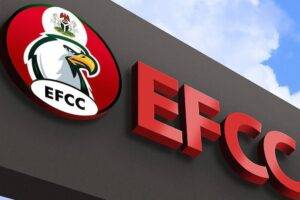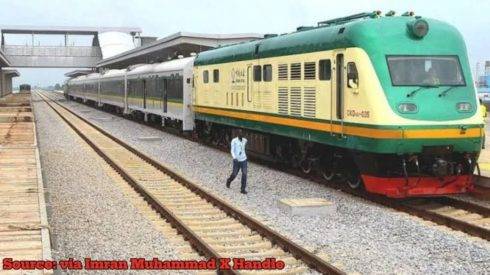The Federal Government of Nigeria initiated commercial train services on the Port Harcourt-Aba railway line on Tuesday. This development aims to cater to the growing needs of the general public and facilitate seamless connectivity between the southern and northeastern parts of the country.
The inauguration ceremony took place at the Railway Station in Port Harcourt, where Senator Alkali, the Minister of Transportation, officially launched the commencement of commercial services on the 62.0-kilometer Port Harcourt to Aba corridor. Alkali emphasized that this event is a crucial component of the Federal Government’s intensified efforts to promote trade, improve transportation infrastructure, and establish better connections between the regions.
Port Harcourt: Revitalizing Trade and Freight Movement
Senator Alkali highlighted the strategic importance of the Port Harcourt-Aba railway line, stating that it will link the ports of Onne, Bonny, and Port-Harcourt, facilitating the efficient evacuation of goods and other freight through the Eastern Corridor. This development is expected to significantly boost trade and economic activities in the region.
Additionally, the minister revealed that the project, which commenced in March 2022, had encountered several technical and contractual challenges. However, the Federal Government remained committed to addressing these issues and ensuring the successful completion of the railway line’s rehabilitation and modernization.
Collaborative Funding and Infrastructure Development
Alkali provided insights into the financing structure of the project, stating, “The Federal Government, in the contractual agreement, is to provide 15 percent of the direct construction cost, inclusive of land acquisition and value-added tax, while a bank loan through direct construction cost is to cover 85 percent of the project.”
The scope of the project encompasses the rehabilitation of the existing narrow-gauge railway line, the construction of new modern stations, and the procurement of new modern rolling stock. These initiatives are expected to significantly enhance the overall transportation infrastructure and passenger experience along the Port Harcourt-Aba corridor.
With the commencement of commercial train services on the Port Harcourt-Aba railway line, the Federal Government aims to promote economic growth, facilitate seamless transportation, and foster stronger regional integration, thereby contributing to the overall development of southern Nigeria.
Government’s Commitment to Revamping Rail Infrastructure Receives Accolades
The Nigerian government’s steadfast efforts towards enhancing the nation’s transportation infrastructure, particularly in the rail sector, have garnered widespread praise. The ambitious initiative aims to interconnect the entire country through an extensive rail network, fostering economic growth and boosting national integration.
Citizens and industry experts alike have commended the administration’s unwavering dedication to this endeavor. The renewed focus on revitalizing and expanding rail networks is seen as a catalyst for progress, unlocking new opportunities for trade, commerce, and mobility across the nation. Moreover, the commitment to preserving and maintaining existing infrastructure through robust maintenance programs has been lauded as a crucial step towards ensuring the longevity and sustainability of these vital assets.
Calls for Improved Ticketing Systems and Accountability Measures
While the government’s efforts have been widely applauded, stakeholders have also voiced concerns over the need for improved ticketing systems and measures to enhance accountability within the rail sector. Experts have suggested adopting innovative solutions like the “Cowry Method” employed by Lagos State, which has proven effective in curbing corruption and streamlining ticketing processes.
Furthermore, there have been calls for increased transparency and oversight mechanisms to ensure that the funds allocated for infrastructure development are utilized effectively and efficiently. Implementing stringent auditing and monitoring protocols could help mitigate potential misappropriation of resources and ensure that the projects deliver maximum value to the Nigerian people.
By addressing these concerns and capitalizing on the momentum generated by the ongoing rail infrastructure initiatives, the government can pave the way for a truly transformative transportation network that propels the nation towards sustainable economic growth and prosperity. Copy
Table of Contents
Discover more from OGM News NG
Subscribe to get the latest posts sent to your email.














